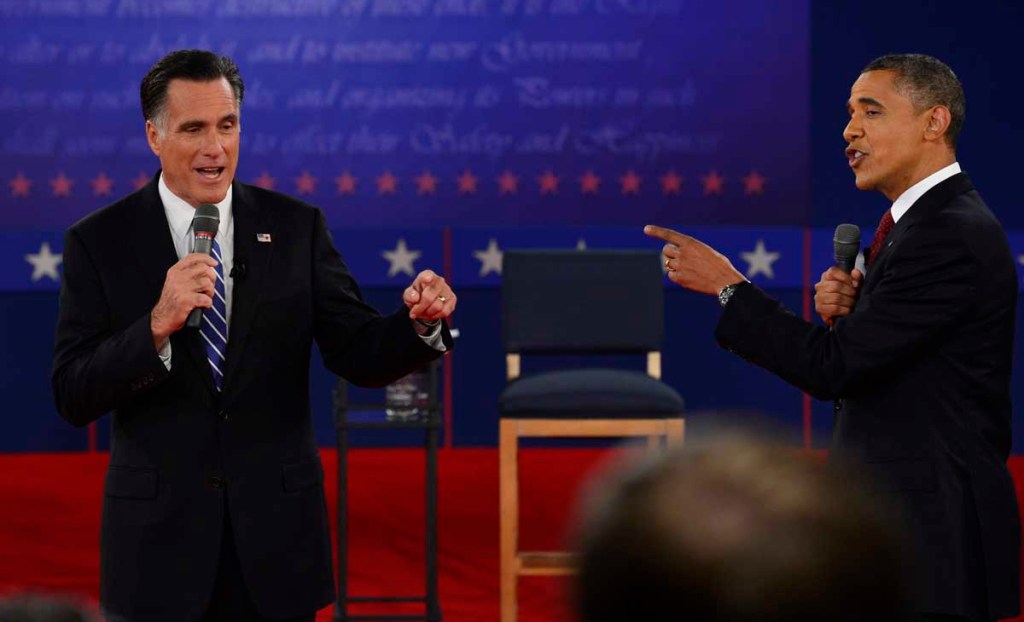5 things to watch for in foreign policy debate
Published 8:46 pm Tuesday, July 15, 2014

- It didn't take long for Mitt Romney, left, and President Barack Obama to get into a stand-up argument during their debate Tuesday at Hofstra University in Hempstead, N.Y.
If, at the start of the general election campaign, you told a seasoned political strategist in either party that the fate of the presidential race could well hinge on the foreign policy-focused third debate, the reaction would have ranged from an eye roll to laughter.
Trending
And yet, here we are. President Barack Obama and former Massachusetts governor Mitt Romney head to Boca Raton, Fla., for their final debate Monday night with national polls suggesting that the race is tied and with the terrorist attack in Benghazi, Libya, dominating the headlines.
Following are five thoughts on what to watch for in the debate:
Romney’s third strike on Libya: The conflicting stories coming out of the Obama administration over the Sept. 11 attack that left Ambassador Chris Stevens and three other Americans dead should make for a potent Romney attack line. And yet, he has swung and missed twice on the issue. First, his campaign released a decidedly political statement before the news of Stevens’s death broke. Then he lost the Libya back-and-forth in the second presidential debate as he tried to corner Obama and wound up cornered himself. If, in the final debate, Romney takes another big swing on Libya and comes up empty, his campaign may well look back on those three moments as one of the critical missed opportunities of the election.
Obama won the Libya battle but…: In the wake of Romney’s blundering on the Libya attack in the second debate, Republicans said that Obama might have won that moment but that the ongoing controversy about the incident wouldn’t go away and would ultimately hurt the president more than Romney. There’s little question that in a foreign policy-focused debate Obama will be forced to explain in more detail why his administration reacted the way it did — and why there were so many seemingly contradictory threads regarding what happened. Romney probably won’t make the same mistake he did in the second debate — allowing Obama a way to turn the tables on him — and instead will try to force the spotlight on the incumbent. Obama will have to provide some clarity, given the fuzziness that surrounds the attack.
Moderator Bob Schieffer’s stance: The moderators of the first three debates — one vice presidential, two presidential — have emerged from the festivities as a story line in their own rights, and generally not in a good way. Given that, the final moderator, CBS veteran newsman Bob Schieffer, steps into something of a snake pit. How will Schieffer navigate the likelihood that both candidates will ignore (or at least stretch) the rules of engagement and repeatedly insist that the other guy isn’t telling the truth? Interrupt? Tell them to stop speaking? Use humor? Cut off their mics? (Okay, that last one won’t happen — but wouldn’t it be great if it did?) Schieffer is a pro’s pro, but the task he is faced with is close to impossible.
The vision thing: We’ve made no secret of our belief that the election won’t be decided by matters of foreign policy — not even an issue as hot as Benghazi is at the moment. That said, people want and expect that a candidate has the knowledge and vision to represent the United States on the world stage — and Romney continues to struggle to convince voters that he does. Need evidence? The latest Washington Post-ABC News national poll gave Obama a 10-point lead on which candidate registered voters trusted more to handle international affairs. (The gap was seven points among likely voters.) Although Romney has made up some of that deficit over the past few months — he trailed Obama by 17 points among registered voters on that world-leader issue in February — he has not been able to narrow it nearly as much as most neutral observers expected he would. Monday’s debate is Romney’s best chance to close that gap; one of the announced topics is “America’s role in the world.”
A surprise (for once)?: With the level of preparation that goes into these debates by both candidates — not to mention the litigating of the format to within an inch of its life by the campaign lawyers — surprises are a rarity. But the foreign policy-themed debate does offer the possibility that a question is asked for which one (or both) of the candidates doesn’t have an answer at the ready. (Gerald Ford, anyone? “There is no Soviet domination of Eastern Europe.”) A gap in knowledge would be very problematic for either man, but even more so for Romney, who, as mentioned above, largely remains an unknown (or unproven) commodity on foreign policy for most voters.
– – –
Cillizza writes The Fix, a politics blog for The Washington Post.


